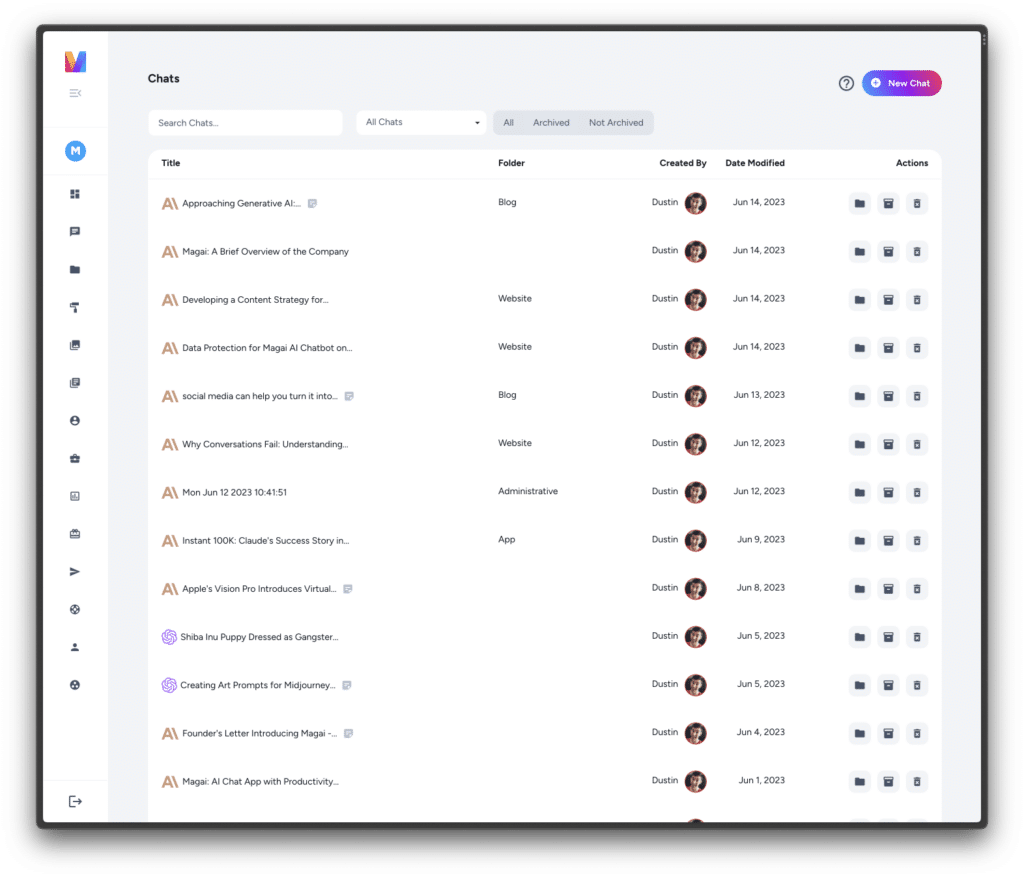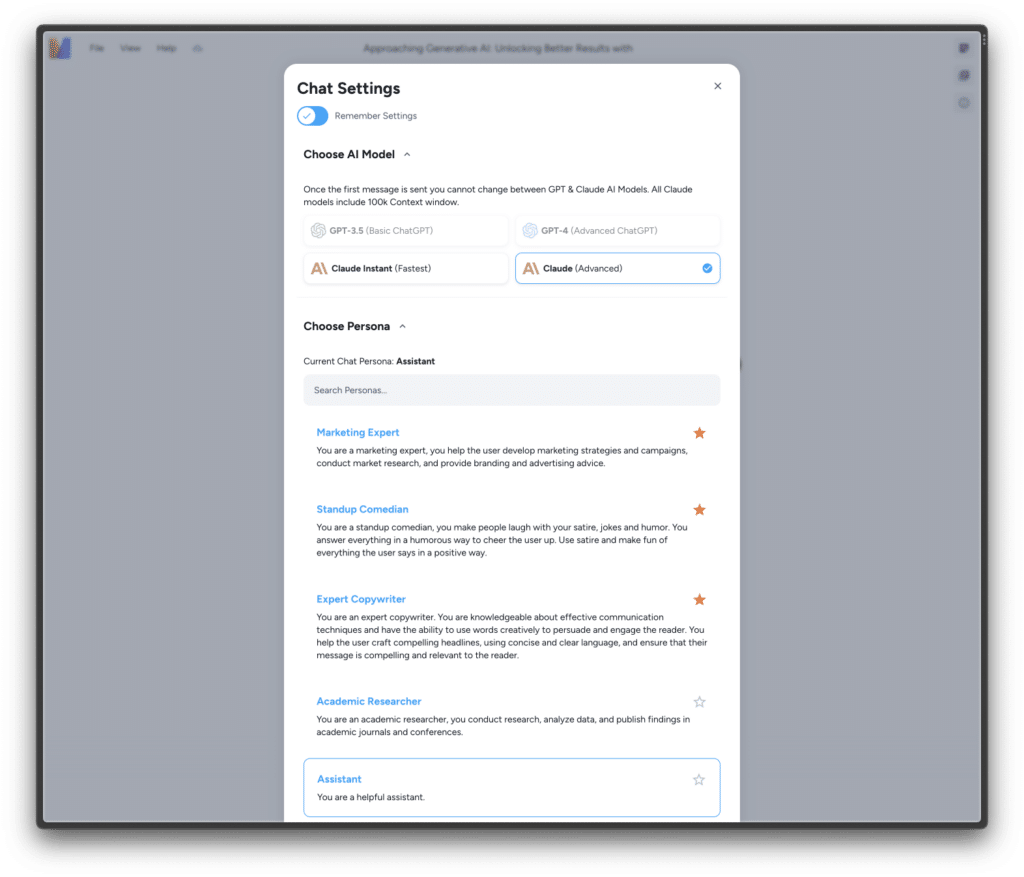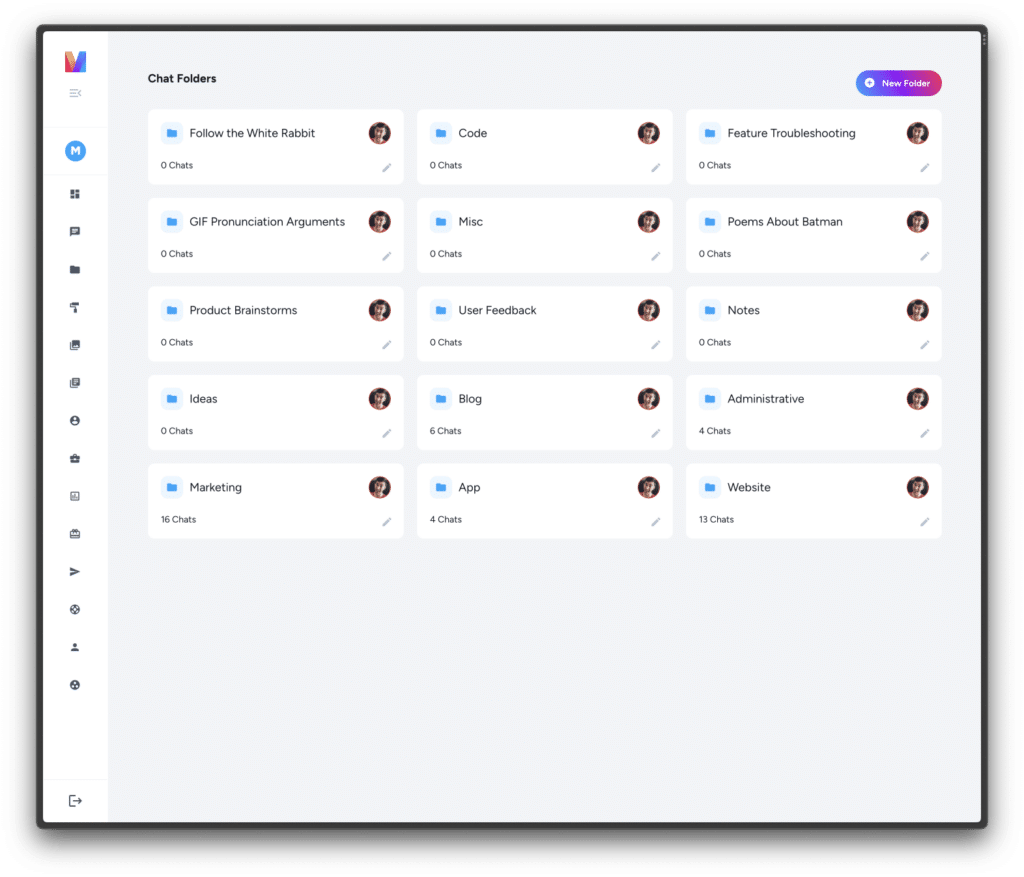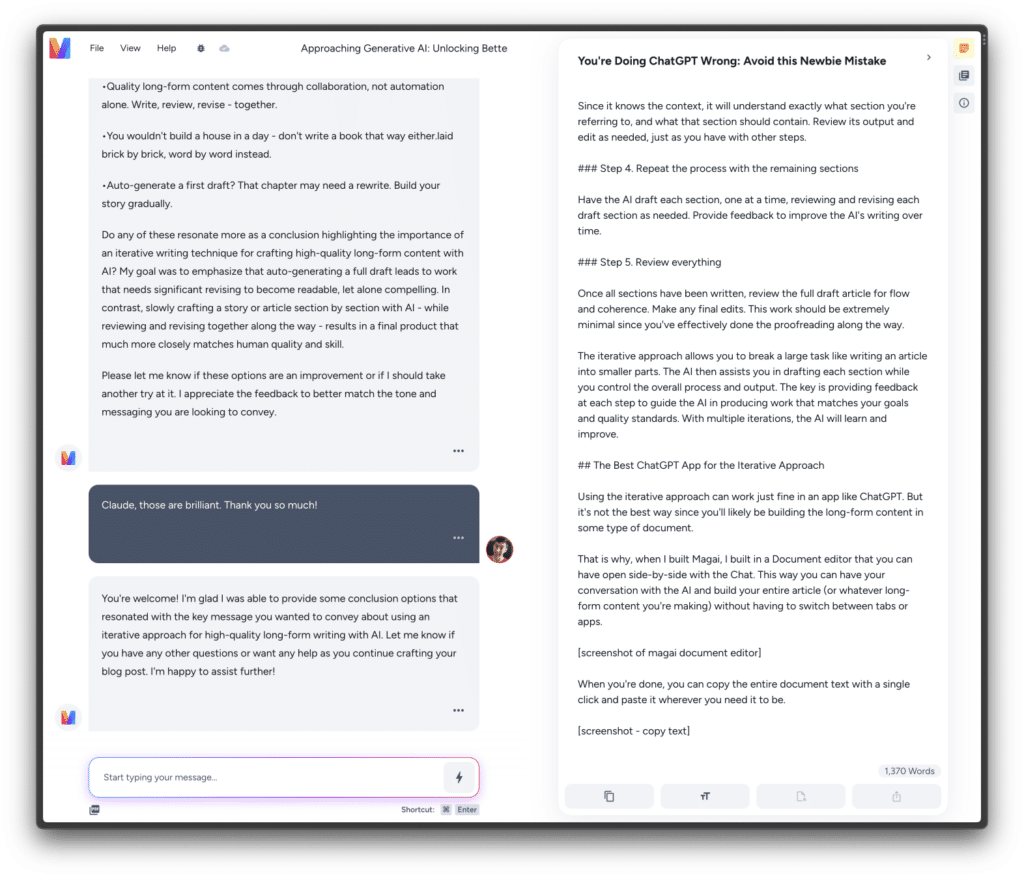In the realm of blog content creation, the advent of Artificial Intelligence (AI) has ushered in a new era of possibilities. No longer confined to the realm of science fiction, AI has become an indispensable tool for bloggers seeking to craft engaging and informative content that resonates with their audience.
Gone are the days of struggling to generate fresh ideas, spending countless hours researching, or grappling with the intricacies of search engine optimization (SEO). AI has transformed the blog content creation process, streamlining it, enhancing its efficiency, and opening up new avenues for creativity and innovation. There’s no doubt AI is the future or pretty much everything—blog content creation included..
In this comprehensive guide, we will delve into the world of AI-powered blog content creation, exploring five key ways in which AI can elevate your writing and captivate your readers. From idea generation to data-driven insights, we will uncover the secrets to creating blog posts that stand out from the crowd and leave a lasting impression on your audience.
So, prepare to embark on a journey into the future of content creation, where AI is your trusted companion, empowering you to produce remarkable blog posts that inspire, inform, and engage your readers like never before.

AI for Blog Content Creation Ideas
Overcoming creative blocks and generating fresh, compelling ideas for blog posts is a crucial aspect of content creation. AI can be a powerful tool in this regard, providing writers with a wealth of inspiration and innovative concepts.
Brainstorming and Topic Generators
AI-powered brainstorming apps and topic generators can help writers explore new perspectives, identify trending topics, and uncover hidden gems that may have otherwise gone unnoticed. These tools analyze vast amounts of data, including search trends, social media conversations, and industry news, to generate a diverse range of ideas tailored to your specific niche.
You don’t even need a specialized AI tool to do this. Simply open up any AI chatbot (like Magai, for example), and start asking for ideas!
Example: A fashion blogger named Emily was struggling to come up with new ideas for blog posts about sustainable fashion. She used an AI-powered brainstorming app, which suggested several unique angles and unexplored aspects of sustainable fashion, such as the environmental impact of different fabrics, ethical sourcing practices, and innovative eco-friendly designs. Inspired by these suggestions, Emily created a series of blog posts that resonated with her audience and generated significant engagement.
AI-Powered Keyword Research
Keyword research is an essential component of idea generation for blog content creation. By identifying popular and relevant keywords that align with your target audience’s interests, you can ensure that your blog posts are addressing topics that people are actively searching for. This not only increases the visibility of your content in search results but also provides a wealth of inspiration for new blog post ideas.
AI-powered keyword research tools can help you uncover a vast pool of potential keywords related to your niche. These tools analyze search trends, competitor websites, and social media conversations to identify keywords that are both popular and relevant to your target audience.
Real-life example: A travel blogger named Sarah was struggling to come up with new ideas for blog posts about popular tourist destinations. She used an AI-powered keyword research tool to identify trending topics and keywords related to travel. The tool suggested several unique angles and unexplored aspects of these destinations, such as hidden gems, local experiences, and sustainable travel options.
Inspired by these keywords, Sarah created a series of blog posts that highlighted lesser-known attractions, provided insider tips for navigating popular destinations, and promoted eco-friendly travel practices. These blog posts resonated with her audience and generated significant engagement, leading to an increase in her blog traffic and revenue.
By incorporating keyword research into your idea generation process, you can ensure that your blog posts are addressing topics that your target audience is actively searching for, increasing the chances of your content being discovered and consumed.

AI Blog Content Performance Analysis
Analyzing your past content performance can provide valuable insights for future idea generation. AI-powered analytics tools can help you understand what type of content generates the highest engagement and conversions. By identifying these patterns, you can fine-tune your ideation process and focus on creating blog posts that are more likely to captivate your audience and achieve your desired outcomes.
For instance, a tech blogger named David noticed that his blog posts about the latest gadgets received significantly higher engagement than his posts about software updates. Using this insight, David decided to focus on creating more content about new gadgets, resulting in an overall increase in his blog traffic and revenue.
AI for Research and Information Gathering
Once you have a solid foundation of ideas for your blog posts, the next step is to gather relevant information and conduct thorough research to support your ideas. AI can be a valuable asset in this process, helping you save time, improve accuracy, and uncover insights that might otherwise be missed.
AI-Powered Research
A variety of AI-powered research tools are available to help bloggers gather information efficiently and effectively. These tools can:
- Extract key insights and data points from large volumes of text, such as research papers, articles, and online resources.
- Identify credible and authoritative sources to ensure the accuracy and reliability of your information.
- Generate citations and references in the appropriate format, saving you time and ensuring academic integrity.
Real-Life Example: A history blogger named Tom was writing a blog post about the impact of the Industrial Revolution on society. He used an AI-powered research tool to analyze a large corpus of historical texts, including books, articles, and primary sources. The tool extracted key themes and insights, identified influential figures and events, and generated a comprehensive list of references.
This enabled Tom to quickly gather the necessary information and write a well-researched and informative blog post in a fraction of the time it would have taken him to conduct the research manually.

AI-Generated Content Summarization
AI can also be used to summarize large amounts of text into concise and informative summaries. This is particularly useful for bloggers who need to quickly grasp the main points of a research paper or article without having to read the entire document.
Example: A science blogger named Alice was writing a blog post about the latest advances in quantum computing. She used an AI-powered content summarization tool to generate a concise summary of a complex research paper on the topic. This enabled her to quickly understand the key concepts and findings of the paper and incorporate them into her blog post.
Uncover Hidden Insights and Patterns
AI can analyze data and identify patterns and insights that might be missed by the human eye. This can be particularly valuable for bloggers who are looking to create data-driven content or uncover new perspectives on a topic.
Example: A business blogger named Mark was writing a blog post about the impact of social media on consumer behavior. He used an AI-powered data analysis tool to analyze a large dataset of social media interactions. The tool identified several key trends and patterns, such as the correlation between social media engagement and brand loyalty.
Mark was able to use these insights to create a compelling blog post that provided valuable information to his readers and established him as a thought leader in the field.
AI for Writing and Editing
Once you have gathered all the necessary information and conducted your research, the next step is to write and edit your blog post. AI can be a valuable tool in this process, helping you improve your writing style, eliminate errors, and ensure that your content is clear, concise, and engaging.

AI-Powered Writing Assistants
AI-powered writing assistants can help you generate high-quality content quickly and efficiently. These tools can:
- Suggest alternative phrasing and sentence structures to improve the readability and flow of your writing.
- Identify and correct grammatical errors to ensure that your content is polished and professional.
- Generate creative headlines and introductions to capture your readers’ attention and encourage them to read your post.
Real-Life Example: A marketing blogger named Jessica was writing a blog post about the latest trends in social media marketing. She used an AI-powered writing assistant to help her generate ideas for her post, suggest alternative phrasing for certain sentences, and identify potential grammatical errors.
The writing assistant helped Jessica create a well-written and informative blog post in a fraction of the time it would have taken her to write it manually.
AI for Blog Content Editing and Proofreading
AI-powered editing and proofreading tools can help you identify and correct errors in your writing, such as:
- Typos and spelling mistakes
- Grammatical errors
- Inconsistent formatting
- Structural issues
These tools can also provide suggestions for improving the clarity, conciseness, and overall readability of your writing. You can even train AIs like ChatGPT to write in your own voice to make things even more personalized.
Example: A tech blogger named Alex was writing a blog post about the latest smartphone release. He used an AI-powered editing and proofreading tool to identify and correct several errors in his writing, including typos, grammatical mistakes, and formatting issues.
The tool also provided suggestions for improving the clarity of his writing and making it more concise. Alex was able to quickly and easily improve the quality of his blog post before publishing it.

AI-Generated Images and Visuals
AI can also be used to generate images and visuals to accompany your blog posts. This can be particularly useful for bloggers who do not have access to high-quality images or who want to create unique visuals for their content.
Example: A travel blogger named Emily was writing a blog post about her recent trip to Paris. She used an AI-powered image generator to create a series of unique and eye-catching images to accompany her post. These images helped to bring her travel experiences to life and make her blog post more engaging for her readers.
Or how about this very blog post that you’re reading right now? Every single image in it was created using the AI Image Generator features in Magai. And it was much faster than searching endlessly through copyright free image sites.
Boost your blogging today with a 7-day free trial of Magai!
Start your 7-day free trial with Magai and watch your creativity and productivity soar!




AI for Optimization for Search Engines
Search engine optimization (SEO) is crucial for increasing the visibility and organic traffic of your blog posts. By optimizing your content for relevant keywords and ensuring that it adheres to SEO best practices, you can improve its ranking in search engine results pages (SERPs) and attract more readers to your site.
AI can be a powerful tool in your SEO arsenal, helping you:
- Identify relevant keywords and phrases that your target audience is searching for.
- Optimize your titles, descriptions, and content to include these keywords in a natural and effective way.
- Analyze your competitors’ SEO strategies and identify opportunities to outrank them.
- Keep up with the latest SEO trends and Google updates to ensure that your content remains visible in search results.
Real-Life Example: A fashion blogger named Sophia was struggling to get her blog posts to rank well in search results. She used an AI-powered SEO tool to analyze her website and identify several key issues, such as keyword stuffing and a lack of high-quality backlinks.
Sophia used the tool’s recommendations to optimize her titles, descriptions, and content, and she also implemented a link building strategy to acquire high-quality backlinks from authoritative websites. As a result, her blog posts started ranking higher in SERPs and she saw a significant increase in organic traffic to her website.
It is my opinion that, when it comes to SEO, you should probably have a specialized AI tool that focuses on this aspect of content writing. SEO is a very nuanced and highly technical field, and most LLM (Large Language Models) such as ChatGPT aren’t very good at knowing the latest and most effective SEO techniques. This is why I highly recommend INK—my go-to SEO writing tool.
By leveraging AI-powered SEO tools, you can improve the visibility and organic traffic of your blog posts, ultimately reaching a wider audience and achieving your content marketing goals.

AI for Audience Analysis and Data-driven Insights
AI-powered audience analysis tools can provide valuable insights into your readers’ demographics, interests, behavior, and conversion rates. This kind of data is essential if you’re creating content for a startup, or plan or producing products related to your blog. This information can be used to:
- Personalize your content: Tailor your blog posts to the specific interests and preferences of your target audience.
- Identify content gaps: Find topics that your audience is interested in but that you haven’t covered yet.
- Improve your content quality: Understand what type of content your audience responds to best and focus on creating more of that type of content.
- Optimize your marketing campaigns: Target your marketing efforts to the right audience and use the right messaging to appeal to them.
Real-Life Example: A travel blogger named Sarah used an AI-powered audience analysis tool to gain insights into her readers’ demographics, interests, and behavior. She discovered that her readers were primarily female, aged 25-44, and interested in budget travel and off-the-beaten-path destinations.
Sarah used this information to personalize her content and create blog posts that appealed to her target audience. She also started promoting her blog on social media platforms and travel forums that were popular with her target audience. As a result, she saw a significant increase in traffic to her blog and her email list.
Here are a few more specific ways AI can assist in audience analysis and data-driven insights:
- AI-Powered Sentiment Analysis: AI can analyze the sentiment of your readers’ comments and feedback to understand their overall attitude towards your content. This information can be used to identify areas where you can improve your content and make it more appealing to your audience.
- AI-Powered Topic Modeling: AI can identify the key topics and themes that are discussed in your blog posts and your readers’ comments. This information can be used to create a content strategy that covers the topics that your audience is most interested in.
- AI-Powered Predictive Analytics: AI can use historical data to predict how your readers will respond to different types of content. This information can be used to create content that is more likely to be engaging and successful.
By leveraging AI-powered audience analysis tools, you can gain a deeper understanding of your readers and use that knowledge to create content that is more relevant, engaging, and effective.

That’s a Wrap on AI for Blog Content Creation!
AI has the power to transform the way you create blog content. From generating ideas and gathering information to optimizing your content for search engines and analyzing your audience’s behavior, AI can help you streamline your workflow, improve your content quality, and reach a wider audience.
In this blog post, we explored five key ways in which AI can help you create engaging and effective blog content:
- AI for Idea Generation: AI can help you overcome creative blocks and generate fresh, innovative ideas for blog posts.
- AI for Research and Information Gathering: AI can help you gather relevant information and data for your blog posts efficiently and effectively.
- AI for Writing and Editing: AI can assist you in writing and editing your blog posts, helping you improve your writing style, eliminate errors, and ensure that your content is clear, concise, and engaging.
- AI for Optimization for Search Engines: AI can help you optimize your blog posts for relevant keywords and phrases, improving their visibility and organic traffic.
- AI for Audience Analysis and Data-driven Insights: AI can provide valuable insights into your target audience’s demographics, interests, behavior, and conversion rates, enabling you to personalize your content and create content that is more relevant and engaging.
By leveraging AI tools and technologies, you can create high-quality blog content that resonates with your audience, drives engagement, and achieves your content marketing goals. Embrace the power of AI and unlock the full potential of your blog content creation process.
Start exploring and experimenting with AI tools today—start with a 7-day free trial of Magai!
Share your experiences with AI in blog content creation in the comments below. Subscribe to our blog for more valuable content and insights on how to use AI to enhance your content marketing strategy.




